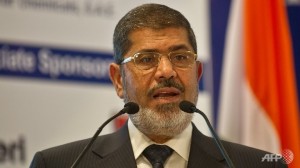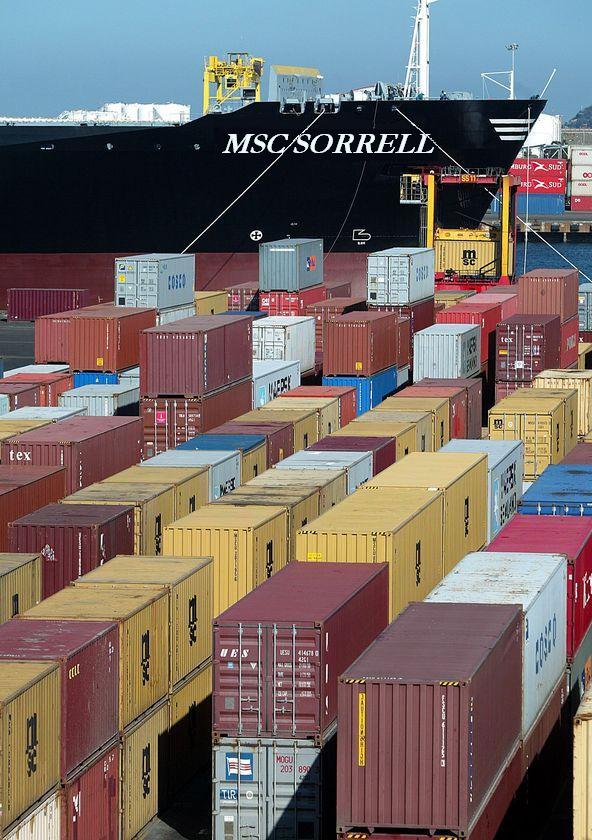
(AFP File Photo)
By Nasser Youssef
Bank loan rates increased during former President Mohamed Morsi’s term by 8.2% in the fiscal year ending in June, compared to 6.7% during the previous fiscal year.
A Central Bank report stated that EGP 41.6bn in bank loans were provided between July 2012 and June 2013, compared to a 6.7% increase during the 2011-2012 fiscal year.
When Morsi took office in July 2012, Egyptian bank loans totaled EGP 503.2bn, compared to the EGP 544.8bn after his removal in July 2013.
According to the report, lending from Egypt’s banking sector to the government increased by EGP 2.2bn during Morsi’s term, from EGP 33.5bn in July 2012 to EGP 35.7bn in June 2013, representing a 6.5% increase. This is compared to a 15.8% decrease witnessed during the previous fiscal year, during which funding provided to the government decreased from EGP 39.8bn in June 2011, to EGP 33.5bn in June 2012, representing a EGP 6.3bn decrease.
Loan balances provided to the private sector, meanwhile, increased by EGP 39.5bn, from EGP 469.6bn in June 2012 to EGP 509.1bn in June 2013, representing an 8.4% increase. This is compared to an 8.8% increase witnessed during the previous year, during which total funding increased by EGP 38.2bn, from EGP 431.4bn in June 2011 to EGP 469.6bn in June 2012.
The report stated further that foreign currency loans provided by banks increased by 11% during Morsi’s term, from EGP 124.1bn to EGP 137.8bn, a EGP13.7bn increase. This is compared to a 1% decrease in foreign currency loans in the previous year, during which rates decreased by EGP 1.3bn, from EGP125.4bn to EGP124.1bn.
Total deposit rates during Mori’s term increased by 15.9%, from EGP 1.026tn in June 2012 to EGP 1.190tn in June 2013, an increase of EGP136.9bn. This is compared to a 6.3% increase in the previous fiscal year, during which total balances increased by EGP 61.3bn, from EGP 965.3bn to EGP 1.026tn.
Government deposits increased by EGP 8.1bn during Morsi’s term, from EGP 118.6bn in June 2012 to EGP 126.7bn in June 2013, representing an 6.8% increase. This is compared to a 1.1% increase during the previous fiscal year, from EGP 117.2bn in June 2011 to EGP 118.6bn in June 2012, a EGP 1.4bn increase. Non-government deposits during Morsi’s term, meanwhile, witnessed a 17% increase in growth, from EGP 908bn to EGP 1.064tn, a EGP155.8bn increase. This is compared to a 7% growth witnessed during the previous fiscal year, from EGP 848.1bn in June 2011 to EGP 908.1bn in June 2012, representing a EGP 60bn increase.
Total foreign currency deposit balances in the banking sector also witnessed an 18.3% increase during Morsi’s term, from EGP 245.7 to EGP 290.7bn, a EGP 45bn increase. This is in comparison to a 10% increase during the previous year, from EGP 232bn to EGP 245.7bn, a EGP 13.5bn increase. Meanwhile, the report stated that domestic debt increased by 18% in the first nine months of Mohamed Morsi’s term.
Total domestic debt increased from EGP 1.238tn by the end of the previous fiscal year to EGP 1.460tn by the end of the third quarter of this current year, a EGP 222bn increase.
The report further showed that total debt increased just 13% during Morsi’s term compared to the previous fiscal year, reaching EGP 1.183tn compared to EGP 1.044tn, a EGP 138bn increase.
Net rates for domestic government debt increased by 22% during the first nine months of Mohamed Morsi’s term, reaching EGP 1.211tn compared to EGP 990.5bn, a EGP 220.6bn increase.
These rates increased by 17% during the previous fiscal year, from EGP 808bn to EGP 945bn, or an increase of EGP 137bn.
Translated from Al Borsa newspaper



